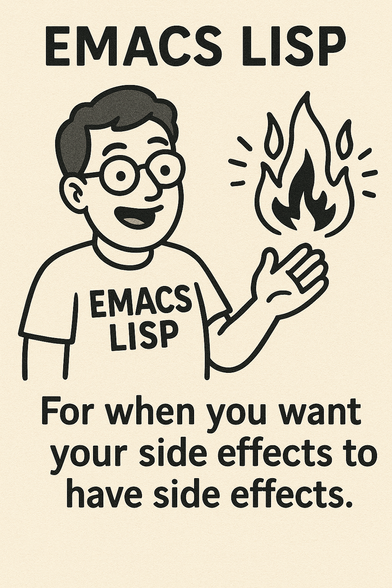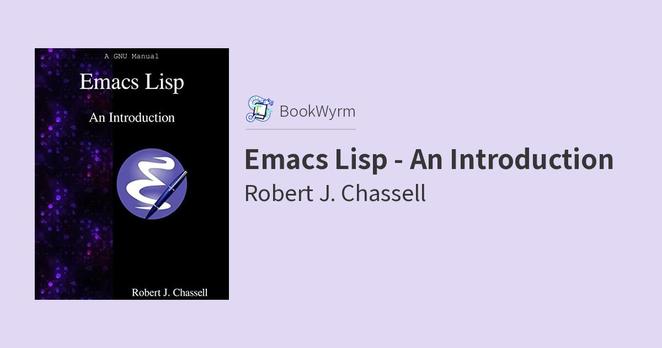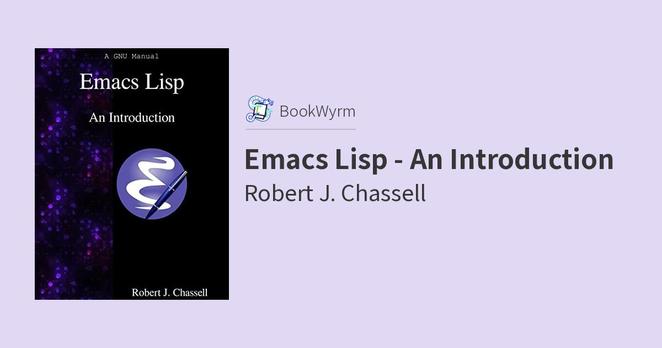Location-Based Themes in Emacs
There are lots of Emacs themes out there. People mostly use them to change colors. That’s great, but you can do more. As the documentation says:
Custom themes are collections of settings that can be enabled or disabled as a unit.
That can be any setting, not just colors.
I use Emacs in multiple situations. I use it at home, I use it in the office, I use it when I’m working from home, and so on. And there are settings that change depending on how and where I’m using Emacs, the most obvious of which being user-mail-address, which I want to set to user@home.org when I’m sending personal mail from home, and user@work.com when I’m sending professional mail from work. I have other settings that change between locations, like the directory where org files go, because reasons. Your location-dependent settings will be different.
So it seems the natural way to deal with this is to put all of the location-dependent settings in a theme, and load whichever theme is appropriate for what you’re doing. Since themes are groups of settings that can be turned on or off as a group, you can even switch themes in the middle of an Emacs session. For instance, if you’re a consultant working with two clients, you can enable theme client1 in the morning; and then, in the afternoon, disable theme client1 and enable theme client2 to update your settings.
Setting Up Location-Based Themes
To start with, let’s set up a couple of themes called personal and work, for personal and professional stuff, respectively. Check the value of custom-theme-directory. By default, Emacs looks for themes in the same directory as init.el, but I like to put them in a separate subdirectory, ~/.emacs.d/themes. Customize this to your taste. For the rest of this post, I’ll assume that you’re using ~/.emacs.d/themes.
Theme files should go in a file named <theme-name>-theme.el. So create the file ~/.emacs.d/themes/personal-theme.el to hold the personal theme:
(deftheme personal "Settings when working on personal projects." :family "location")(custom-theme-set-variables 'personal '(user-mail-address "bob@home.org") ;; Add additional variables here. )(provide-theme 'loc-personal)
You can now run M-x load-theme personal to load the theme. Theme files contain Emacs Lisp code, which can be a security risk, so the first time you load it, or any time you make any changes, Emacs will ask you to confirm whether to load the theme, and whether to mark it as safe in the future. If you say yes, the next time it’ll just load the theme asking for confirmation.
Follow the same steps to create a work theme.
Loading A Theme at Startup
Once you have something that works reasonably well, you’ll probably want something that loads the right theme when Emacs starts. For this example, we’ll assume that if the hostname is my-laptop, then you’re working on personal things and want to load the personal theme, while if the hostname is office-workstation, then you’re at work and want to load the work theme.
Add something like the following to your ~/.emacs.d/init.el:
(add-hook 'emacs-startup-hook (lambda nil ;; Figure out which theme to load, depending on which machine this ;; is running on, and which options were specified. (let ((loc-theme 'unknon) ) (cond ;; Running on personal laptop. ((string= system-name "my-laptop") (setq loc-theme 'personal) ) ;; Running on work machine. ((string= system-name "office-workstation") (setq loc-theme 'work)) ;; Add any other locations/work modes here. )) ;; Check whether the theme exists. If it does, load it. (if (member loc-theme (custom-available-themes)) (progn (load-theme loc-theme) ) (warn "Can't find location theme \"%s\"" loc-theme) ))))
Here, we’re just looking at the hostname, but obviously the condition can be arbitrarily complex. You might pick different themes depending on the day of the week, or whether you’re ssh-ed in from another host, the phase of the moon, or whatever makes sense in your situation. Add or remove themes as necessary.
Further Thoughts
One advantage of doing things this way is separation of information. Maybe you want to make your Emacs setup publicly visible on github, but your work setup includes hostnames or other information that shouldn’t leave company premises. In this case, you can store your work-theme.el file on your company machine, perhaps in a separate directory. You can add an entry to custom-theme-load-path, a directory outside of ~/.emacs.d, so that your work theme doesn’t accidentally get added to the git repo that has your init.el and your publicly-visible themes.
There’s one problem that I haven’t found a good solution to: child themes. Let’s say you have your work theme, with a hundred work-related settings. But of those 100 settings, there are three that change depending on whether you’re logged in to host1 or host2.It would be nice to have a host1 theme that automatically includes everything from the work theme, plus the three settings that are specific to host1. I don’t see a good way of doing this. It might make sense to use literate programming to generate multiple *-theme.el files from one source .org file.
#emacs #emacsLisp #literateProgramming


